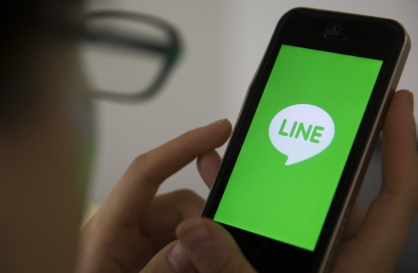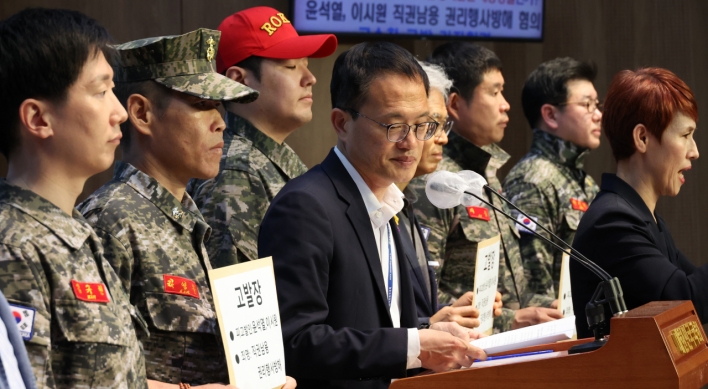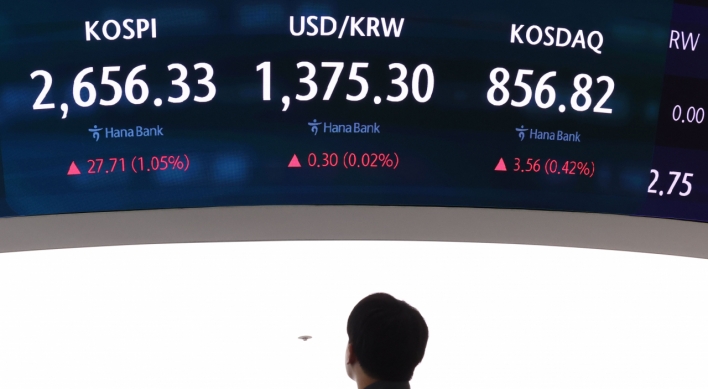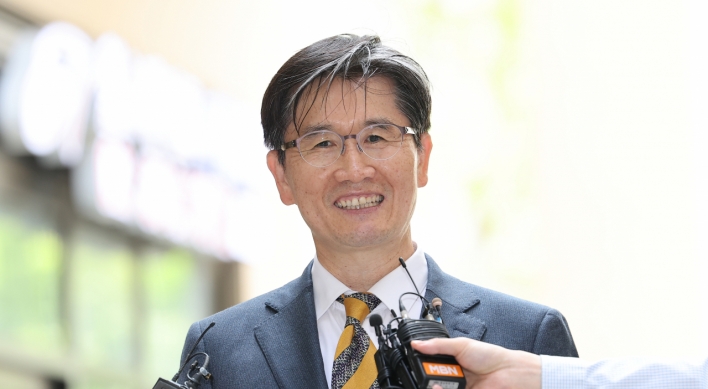Korean slander law is surprisingly different from that of the United States, and surprisingly easy to violate. In both countries the underlying rationale is to prevent defamatory statements about an individual being made to a third party. However, that is where the similarity ends and the differences begin. While in the United States the elements of slander will vary depending on the public nature of the individual and the information, the offense is, at its  simplest, the oral communication of a false statement to a third party. There is a related defamatory tort for the public disclosure of private facts which can be violated with truthful statements, but slander requires falsehood. Truth is an absolute defense and slander is almost always a civil action. By contrast in Korea slander is a criminal offense and covers true statements made with bad intentions, as well as false statements made regardless of intent.
simplest, the oral communication of a false statement to a third party. There is a related defamatory tort for the public disclosure of private facts which can be violated with truthful statements, but slander requires falsehood. Truth is an absolute defense and slander is almost always a civil action. By contrast in Korea slander is a criminal offense and covers true statements made with bad intentions, as well as false statements made regardless of intent.
In attempting to understand why Korean slander law includes true statements, one must appreciate Korean culture and the concept of “face” or reputation. For westerners coming to Korea for business or employment an understanding of the concept of face should be an educational requirement prior to disembarking at Incheon airport. This concept, together with Confucianism, is woven into the fabric of the culture. While Confucianism can be seen as the procedural law governing interactions between individuals, the concept of face controls the substantive aspects of each interaction. Thus when a younger person interacts with an older person Confucian tradition governs procedure and requires the younger person to bow more deeply, to use respectful verb endings and to use both hands when giving and receiving an item. However, when two or more individuals are engaged in a conversation, face can affect the substance of what is said. Thus a small lie told with the intent of saving face for those involved or a lie of omission is considered more proper than revealing an embarrassing truth. The preservation of face, or reputation, is paramount. In contrast, western culture believes that a person’s integrity is fundamental and that truthfulness by itself preserves dignity. Thus the concepts of “a man is only as good as his word,” and “honesty is the best policy” form the core of western teachings to children. Perhaps the forthright nature of this article itself is a demonstration of the author’s western upbringing.
Surprisingly and despite the apparent strictness of the Korean slander law, a visit to a local coffee shop in Korea reveals middle-aged women of Korea busily slandering each other and third parties. Discussions frequently revolve around alleged indiscretions by mutually known individuals and the competence or incompetence of businesspeople ranging from the local dry cleaner to school and academy teachers or owners, whether Korean or foreign. Small businesses can fail or succeed on the basis of the statements made by these women. Promotions may be won or lost for husbands and lives ruined and careers destroyed by vengeful individuals. Often Korean dramas revolve around the attempts of manipulative and mendacious middle-aged anti-heroines to destroy the pure and innocent protagonist. Discussion topics also include their daughters’ boyfriends, the suitability of the daughters of others for their sons and the marriage decisions of their children, all of which can change due to these conversations. And yet, compared to the daily onslaught of statements of dubious veracity, the courts are seldom invoked to curtail this coffee shop gossip.
Further confounding the matter is the comparative ease with which slander actions are available in Korea as compared to the United States. In the United States a civil case of slander requires proof of monetary damage and it is exceedingly rare for slander to be prosecuted under a criminal statute. Further there are many defenses, including the right of free speech, the ability to state opinions, fair comments or criticism, and the ability to make statements that are inherently non-believable, such as accusing a politician of being from Mars. The right of free speech alone often precludes liability. While the right of free speech is in the Korean constitution, it is limited by a provision that speech must not violate the honor of another. Further, in Korea slander is first and foremost a criminal offense without such broad immunities as in the United States. Yet, day after day, in coffee shops throughout the nation slanderous conversations continue. No individual in Korea is safe from the power of these women, and yet there is surprisingly little legal backlash. Perhaps there is no legal solution powerful enough to counteract this aspect of Korean culture, yet awareness of the phenomenon is fundamental to living and doing business in Korea and perhaps that awareness is the most that this article can hope to convey.
By Daniel Fiedler
Daniel Fiedler has been a professor of law at Wonkwang University in Iksan, South Korea since late 2007. Before coming to Korea he was an M&A tax attorney at Howard Rice law firm in San Francisco. ― Ed.
 simplest, the oral communication of a false statement to a third party. There is a related defamatory tort for the public disclosure of private facts which can be violated with truthful statements, but slander requires falsehood. Truth is an absolute defense and slander is almost always a civil action. By contrast in Korea slander is a criminal offense and covers true statements made with bad intentions, as well as false statements made regardless of intent.
simplest, the oral communication of a false statement to a third party. There is a related defamatory tort for the public disclosure of private facts which can be violated with truthful statements, but slander requires falsehood. Truth is an absolute defense and slander is almost always a civil action. By contrast in Korea slander is a criminal offense and covers true statements made with bad intentions, as well as false statements made regardless of intent.In attempting to understand why Korean slander law includes true statements, one must appreciate Korean culture and the concept of “face” or reputation. For westerners coming to Korea for business or employment an understanding of the concept of face should be an educational requirement prior to disembarking at Incheon airport. This concept, together with Confucianism, is woven into the fabric of the culture. While Confucianism can be seen as the procedural law governing interactions between individuals, the concept of face controls the substantive aspects of each interaction. Thus when a younger person interacts with an older person Confucian tradition governs procedure and requires the younger person to bow more deeply, to use respectful verb endings and to use both hands when giving and receiving an item. However, when two or more individuals are engaged in a conversation, face can affect the substance of what is said. Thus a small lie told with the intent of saving face for those involved or a lie of omission is considered more proper than revealing an embarrassing truth. The preservation of face, or reputation, is paramount. In contrast, western culture believes that a person’s integrity is fundamental and that truthfulness by itself preserves dignity. Thus the concepts of “a man is only as good as his word,” and “honesty is the best policy” form the core of western teachings to children. Perhaps the forthright nature of this article itself is a demonstration of the author’s western upbringing.
Surprisingly and despite the apparent strictness of the Korean slander law, a visit to a local coffee shop in Korea reveals middle-aged women of Korea busily slandering each other and third parties. Discussions frequently revolve around alleged indiscretions by mutually known individuals and the competence or incompetence of businesspeople ranging from the local dry cleaner to school and academy teachers or owners, whether Korean or foreign. Small businesses can fail or succeed on the basis of the statements made by these women. Promotions may be won or lost for husbands and lives ruined and careers destroyed by vengeful individuals. Often Korean dramas revolve around the attempts of manipulative and mendacious middle-aged anti-heroines to destroy the pure and innocent protagonist. Discussion topics also include their daughters’ boyfriends, the suitability of the daughters of others for their sons and the marriage decisions of their children, all of which can change due to these conversations. And yet, compared to the daily onslaught of statements of dubious veracity, the courts are seldom invoked to curtail this coffee shop gossip.
Further confounding the matter is the comparative ease with which slander actions are available in Korea as compared to the United States. In the United States a civil case of slander requires proof of monetary damage and it is exceedingly rare for slander to be prosecuted under a criminal statute. Further there are many defenses, including the right of free speech, the ability to state opinions, fair comments or criticism, and the ability to make statements that are inherently non-believable, such as accusing a politician of being from Mars. The right of free speech alone often precludes liability. While the right of free speech is in the Korean constitution, it is limited by a provision that speech must not violate the honor of another. Further, in Korea slander is first and foremost a criminal offense without such broad immunities as in the United States. Yet, day after day, in coffee shops throughout the nation slanderous conversations continue. No individual in Korea is safe from the power of these women, and yet there is surprisingly little legal backlash. Perhaps there is no legal solution powerful enough to counteract this aspect of Korean culture, yet awareness of the phenomenon is fundamental to living and doing business in Korea and perhaps that awareness is the most that this article can hope to convey.
By Daniel Fiedler
Daniel Fiedler has been a professor of law at Wonkwang University in Iksan, South Korea since late 2007. Before coming to Korea he was an M&A tax attorney at Howard Rice law firm in San Francisco. ― Ed.









![[Weekender] How DDP emerged as an icon of Seoul](http://res.heraldm.com/phpwas/restmb_idxmake.php?idx=644&simg=/content/image/2024/04/25/20240425050915_0.jpg&u=)

![[Today’s K-pop] NewJeans' single teasers release amid intrigue](http://res.heraldm.com/phpwas/restmb_idxmake.php?idx=644&simg=/content/image/2024/04/26/20240426050575_0.jpg&u=)





![[Herald Interview] Mistakes turn into blessings in street performance, director says](http://res.heraldm.com/phpwas/restmb_idxmake.php?idx=652&simg=/content/image/2024/04/28/20240428050150_0.jpg&u=)
